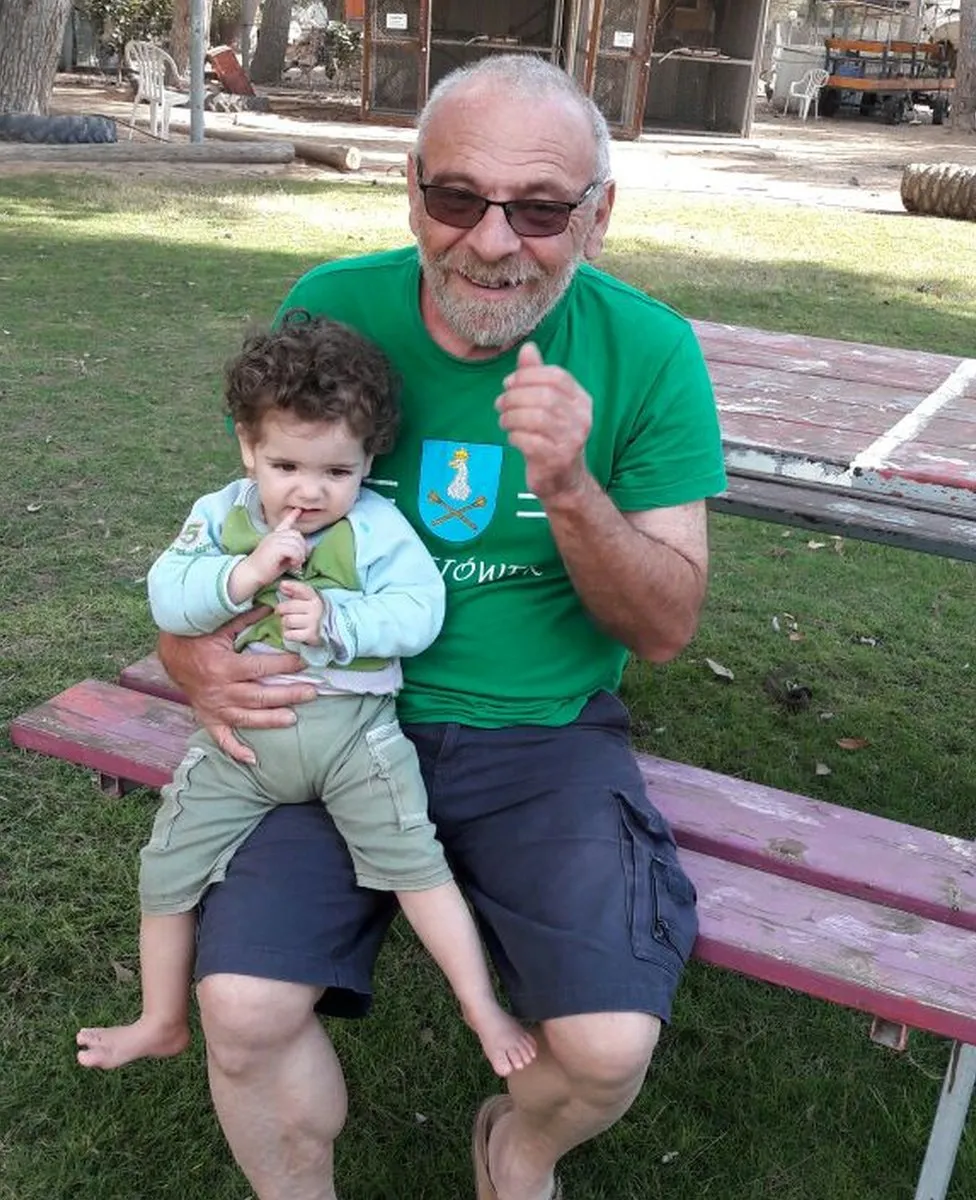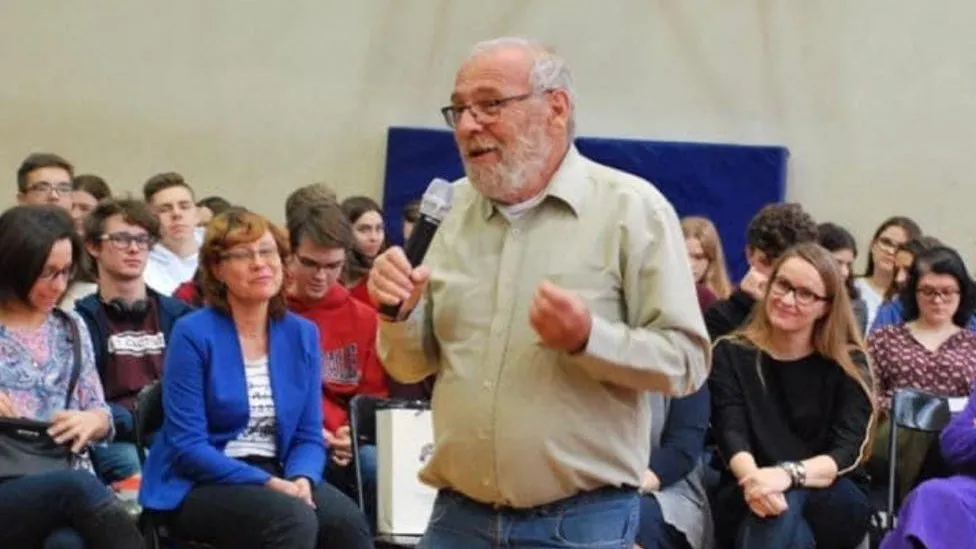Alex Danzig: Fears grow for much-loved historian kidnapped by Hamas
The killing of at least 1,400 people in Israel by Palestinian Hamas militants from Gaza and the taking of more than 100 hostages have reverberated around the world, notably in central and eastern Europe, with its strong Jewish connections and memories of the Holocaust.
There, the taking of one man has caused particular distress and sorrow.
Alex Danzig, a 75-year-old scholar and historian of the Holocaust, has spent the last 30 years working for Yad Vashem, Israel's Holocaust remembrance centre, educating Jews and Poles about what happened in the later years of World War Two.
But he lives in Nir Oz, a kibbutz in southern Israel that is close to Gaza, and hasn't been seen or heard from by his family since 7 October, the day the attackers came.
There's a bitter irony here. Though Alex was born in Poland after the war - in 1948, the same year as the creation of the State of Israel - his older sister Edith is a Holocaust survivor.
Born in 1941 under German occupation in what is now western Ukraine, she was found a place of refuge by her parents with a Polish mother and daughter, Maria and Halina Assanowicz, who saved her from the Nazis.
This humanitarian act also allowed Edith's parents to have more freedom of movement, despite the occupation and the persecution of Jews, and they later testified that they themselves owed their lives to the Assanowiczes. The pair were recognised by Yad Vashem as Righteous Among the Nations in 1982, the highest honour Israel can bestow on non-Jewish saviours of Jews in the Holocaust.
So it would be no exaggeration to say that Alex Danzig also owed his existence to these people
Alex's early life was unremarkable. He spent his first nine years in Poland, and after his parents emigrated to Israel in 1957 he spent time in the military, fighting in several wars, joined a left-wing youth organisation, obtained a degree in history and started a family on the kibbutz.
It was his return to Poland on a trip in 1986, and a visit to the site of Auschwitz - a death camp when the country was occupied by the Nazis - which fuelled his interest in the Holocaust, and in particular the complexity of Polish-Jewish relations. He spent the next few decades leading tours to the death camps, and educating Israeli and Polish students.
Speaking to the BBC, his close friend and former colleague Orit Margilot - who worked with him on the Polish desk at Yad Vashem - describes him as "the most knowledgeable person I know".
She paints a picture of a great communicator who knows how to speak to young people and can break down barriers - for instance with references to people's favourite football teams.
She says his impact has been enormous.
"He knows how to open hearts to this topic [Polish-Jewish relations]. It's really not easy. It worked so well [in Poland] that they all became his friends."
"He has thousands of students who adore and love him," his son Mati told the BBC. "He is an exceptional teacher - every time I've been in a lecture of him I was fascinated."
But aside from his intellectual work, he also loves working on the land and alternates between lecturing and his home in the kibbutz. It was there that he disappeared when the Hamas attackers came.
https://www.bbc.com/news/world-middle-east-67135168






Post a Comment